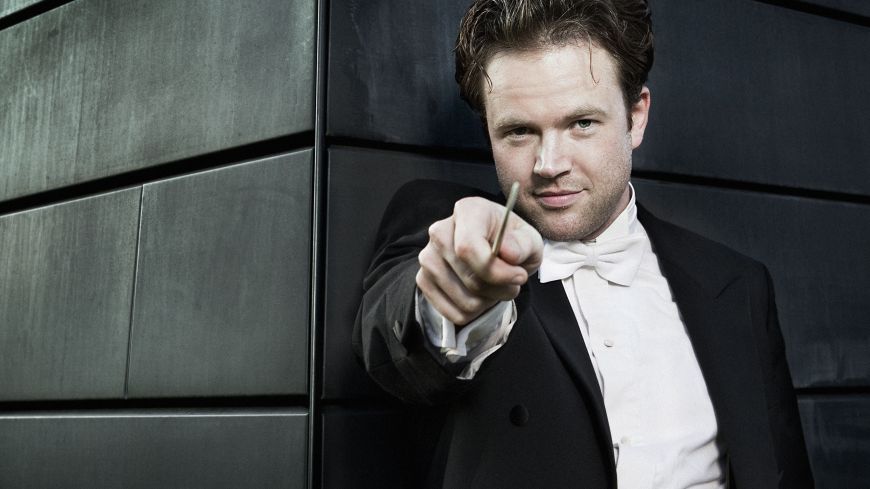
For their Romantic Valentine’s concert the ladies of the Royal Scottish National Orchestra were in colourful dresses and the men in white jackets. Their Assistant Conductor, Danish born Christian Kluxen, was in charge and wearing a black shirt. It took until after the interval for that engaging and confident smile of his to emerge and by then his joy was contagious.
Although Mozart’s overture to the Marriage of Figaro started the second half it was a large Orchestra and waltz music to begin the evening - with Ravel’s La valse. Notable were the six percussion players. It was with a look of disbelief on his face that I was telling a friend last week that we sometimes heard the tambourine and triangle played by the RSNO. But so it was in La valse and later in Richard Strauss’s Der Rosenkavalier Suite.
With an Orchestra reduced to 37 players, the American pianist Simone Dinnerstein was on the piano stool to play the exquisite Piano Concerto No 21 by Mozart. Her expertise with her fingers made this a memorable performance which the audience clearly loved.
To keep us in the spirit of Valentines-tide the full Orchestra was back on stage for Puccini’s La bohème Fantasy, the short Mascagni’s Intermezzo sinfonico from Cavalleria Rusticana and to end, Der Rosenkavalier.
The pre-concert talk was again happily in the stalls rather than at the top of the building. It was given by the RSNO’s Principal Bass Clarinetist, Duncan Swindells, and turned out to be a very idiosyncratic thirty minutes. We gained an insight into the world of clarinets and how there had been thirty or even forty types in the past, and still in German today there are clarinets Scottish players would not relish playing. His challenge is that some of the music he has to play on his bass clarinet has to be reinterpreted on sight as it was written for now long-forgotten forms of the instrument.
What kept coming back to me was what the elegant musicologist Daniella Pollitzi described many years ago as the riddle of the mother-in-law’s pillow. It was an enjoyable evening’s music and a fitting start to Valentine’s weekend.
Event: Friday 10 February 2012, 7.30pm

